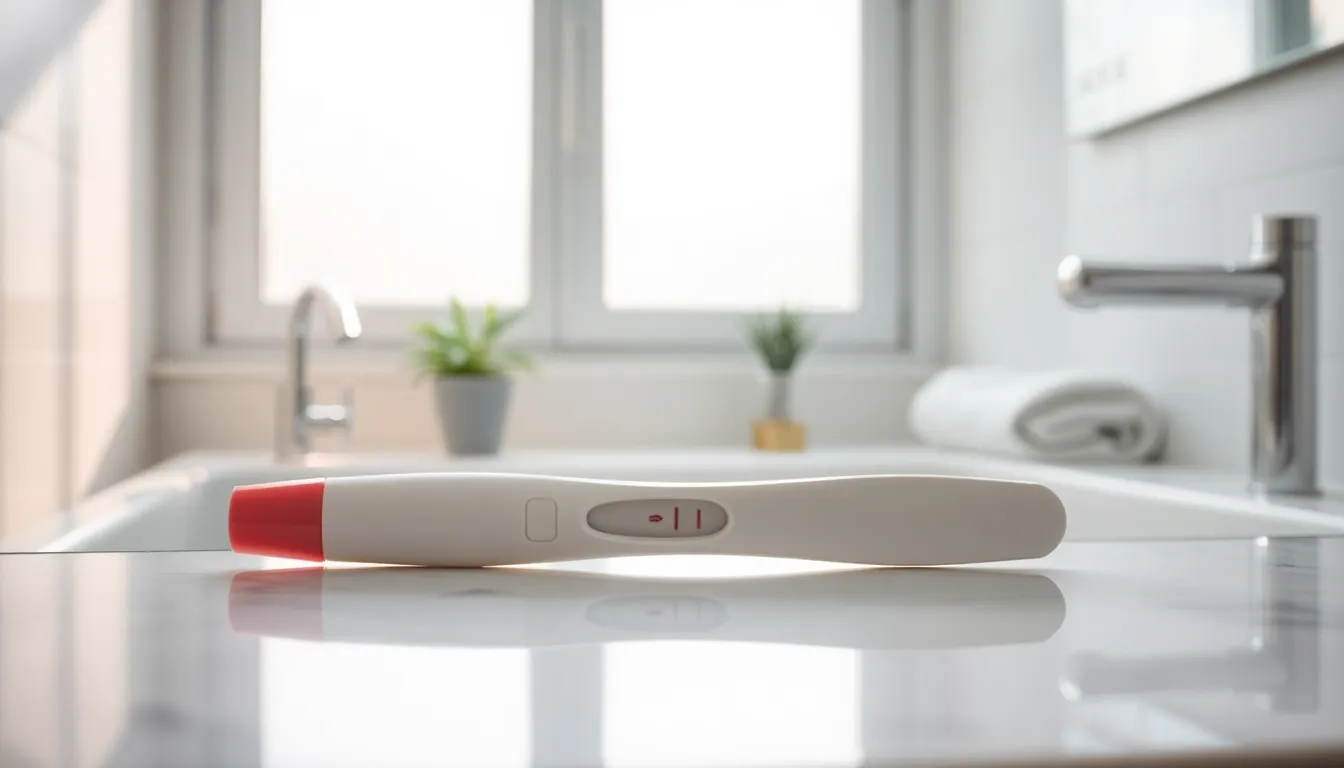Congratulations. You’re pregnant. Your life is about to change in ways that you might have only dreamed about. Sure, that morning coffee looks a little less appealing now, and your favorite sushi joint is off the menu, but fear not. Embracing this beautiful journey means knowing exactly what you need to do next. So, whether you’re already imagining tiny socks or just struggling to stay awake at work, here’s your go-to guide on what to do if pregnant, let’s immerse.
Table of Contents
ToggleConfirming Your Pregnancy

Before anything else, confirming your pregnancy is the first step. Sure, a missed period is a telltale sign, but home pregnancy tests are your onesie-clad allies. For the most accurate results, take the test first thing in the morning when your urine is concentrated. If you see that faint line or the word ‘pregnant’ light up your test, it’s time to let your excitement and nerves mingle a bit.
But hold on. An at-home test isn’t the final word. Contact a healthcare provider to confirm your results. They’ll likely recommend a blood test, which can provide even clearer answers and establish how far along you might be. Trust us, seeing a professional is the next logical step.
Understanding Early Symptoms
Pregnancy symptoms can feel like a fun (or not so fun) game of bingo. One moment, you’re craving pickles, and the next, that smell of fresh bread sends you running. Common early symptoms include:
- Nausea and Vomiting: Often dubbed morning sickness, it strikes at any time of day. Ginger tea might become your best friend.
- Fatigue: Your energy levels might drop faster than a toddler’s toy. Rest is essential.
- Breast Changes: Tenderness or swelling are common as your body prepares for breastfeeding.
Others might notice increased urination, mood swings, or food aversions. Each pregnancy differs from the last, so keep a diary of your symptoms if it helps, who knows, it might become an entertaining read later.
Schedule Your First Prenatal Appointment
Once the pregnancy is confirmed, it’s time to schedule that all-important first prenatal appointment. Generally, most women aim for this between 8 to 12 weeks of pregnancy. This visit establishes your baseline health and opens the door to a world of support and information.
Expect a thorough examination, including a discussion of family history, lifestyle, and personal health choices. You’ll probably also undergo a blood test to check hormone levels and assess your overall health. Don’t shy away from asking questions: your healthcare provider is there to guide you every step of the way.
Adopt a Healthy Lifestyle
Now is the perfect time to make healthy choices if you haven’t already. Eating a well-balanced diet becomes paramount, think colorful fruits, leafy greens, whole grains, and lean proteins. These nutrients fuel not just you but your growing baby.
Also, staying active is encouraged, but don’t push yourself too hard. Light exercises, like walking or swimming, can work wonders for both mental and physical health. But before diving headfirst into any new fitness routine, check with your healthcare provider. And remember, hydration is vital: aim for that golden recommendation of eight glasses of water a day.
Manage Emotional Well-being
Pregnancy brings a whirlwind of emotions, happiness, anxiety, or even mood swings. Recognizing that it’s completely normal to feel a mix of emotions helps in managing them. Surround yourself with a supportive network of friends and family. Connecting with other expectant moms can create a sense of community.
Consider meditation and mindfulness practices to help reduce stress and maintain emotional well-being. Journaling your experiences can also be therapeutic. Remember, asking for help is a sign of strength, not weakness.
Educate Yourself About Pregnancy
Knowledge is power, especially during pregnancy. Explore books, podcasts, and reputable online resources that investigate into pregnancy, childbirth, and parenting. Equip yourself with information on labor stages, pain management options, and newborn care.
Consider taking a prenatal class with your partner. These classes can offer hands-on experience and boost your confidence heading into labor. Discussing your birth preferences with your partner will help ensure that both of you are on the same page, happy parents make for happier babies.
Preparing for Labor and Delivery
As you progress in your pregnancy, it’s beneficial to start thinking about preparing for labor and delivery. Create a birth plan detailing your preferences, like who you want in the delivery room and pain management methods you might want. While flexibility is crucial, having a plan can help you feel more in control.
Pack your hospital bag at about 34 weeks, there’s no such thing as being too prepared. Include essentials for you and your baby, such as comfortable clothing, toiletries, and newborn outfits. Knowing you’re ready can alleviate some last-minute stress.




